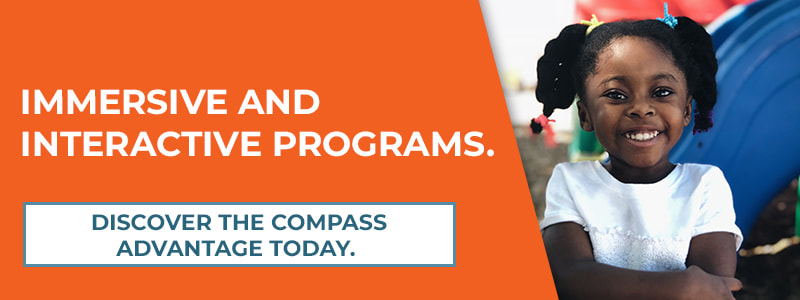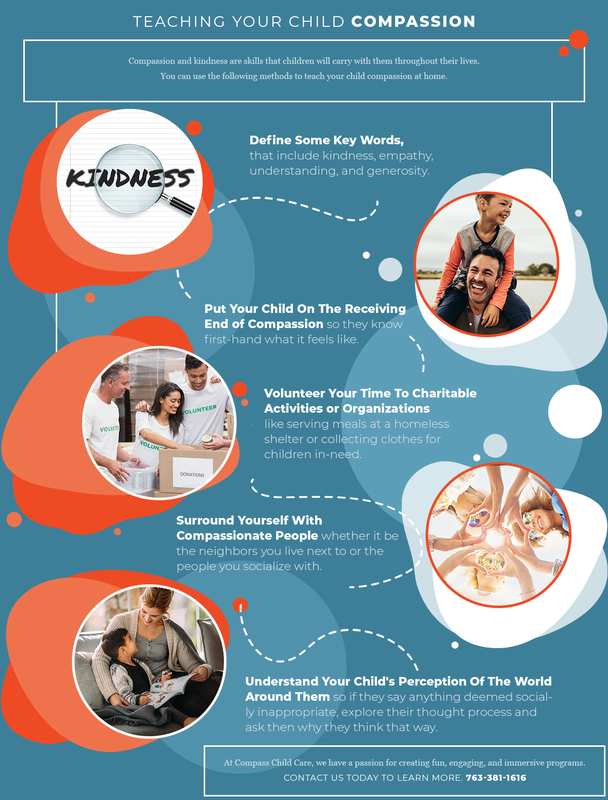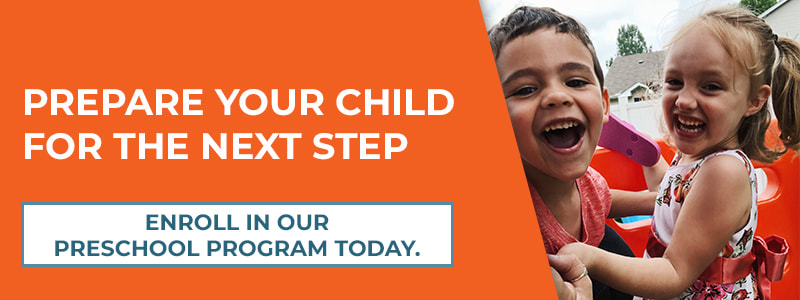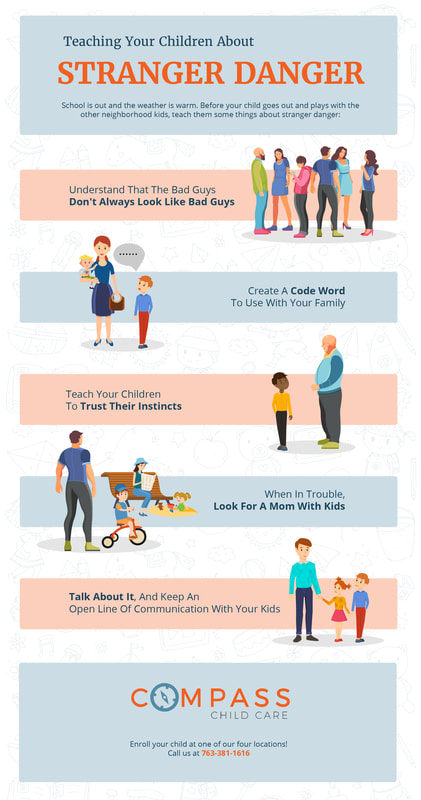|
Children are going to fight, it’s inevitable. Raising your family and your children with mutual respect for one another is great, but living in close quarters with someone will lead to getting on someone’s nerves, and the pushing of buttons that will lead to an argument or a fight. Most of the time, fights between siblings are about wanting to play with a toy that the other is using, when playtime gets a little too intense, or something as simple as splitting a cookie. If you’ve had siblings growing up, you’re familiar with how sibling fights arise. It is completely different, however, to experience sibling fights when they’re your kids! Keep reading to learn how to mediate your child’s sibling fights, and when you’ve had enough kids for one day, contact us for inquiries about our preschool enrollment. With convenient preschool locations in Coon Rapids, Blaine, East Bethel, or Isanti, there is no reason not to enroll with us. It’s Normal
Your kids aren’t monsters for fighting with each other. As a matter of fact, it is completely normal for them to have conflict. Every human relationship has conflict simply because every individual is unique and has their own set of needs. Sometimes two individuals need to play with the exact same stuffed animal at the same time. Just because sibling conflict is normal, however, doesn’t necessarily mean that you are doomed for another couple years, or decade, of your kids screaming at each other while you cook dinner or drive them to school. There are plenty of things you can do to prevent conflict before it happens, and if it comes to it, help your children resolve the dispute by themselves. Don’t Take Sides It is important to remember not to take sides, even if one child physically hurt the other. Once you have been looped into the conflict, your children are going to think that there is going to be a winner and a loser, which can create more hurt feelings between the children, and potentially even more fights. You don’t want to give your children the idea that one of them is the troublemaker, but it is important to address the problem as soon as possible. Without shaming the child who started the fight or who physically escalated the fight, you need to be able to acknowledge their feelings but also set some limits. For example, if an older sibling hits their younger sibling because they grabbed a toy from their hands, you could say something like “You’re mad that your brother grabbed your toy, but he doesn’t understand that it’s yours. Even if you feel upset, it is not O.K. to hit.” Give Siblings One-On-One Treatment Eldest siblings may feel jealous or left out because younger siblings can sometimes get a little more attention. They can notice that they are no longer getting all the attention, which could potentially lead them to hold jealousy against the younger child. It is important to set up one-on-one time with older siblings, building a strong relationship with them, being sure not to show favoritism. This doesn’t mean it needs to be equal all the time, but it is important to try to make things fair. Kids often notice the privileges of their siblings, and it feels painful. Raising a child is never easy, and mediating fights between your children can be a lot harder than you would expect. You can stay updated on our blogs to learn more tips about certain aspects of raising kids, but remember raising children is a singular experience, and you’re doing the best you can. Take some deep breaths, and if you need a preschool in Coon Rapids, Blaine, East Bethel, or Isanti, then contact us today.
0 Comments
Like many things, kindness is something that your child will carry with them through the rest of their lives. Kindness, forgiveness, and compassion are all incredible traits that can be underestimated, but can have huge impacts on helping to make your child more kind and gentle, which let’s be honest, was never a bad thing. Research has found that the desire to help and comfort comes just as naturally to humans as being self-centered or hurtful. Keep reading to find out how your child benefits from being a compassionate being, and what you can do to encourage their kindness. For more information about our preschool programs and our curriculum, then please don’t hesitate to contact us today. We have preschool locations in Coon Rapids, Each Bethel, Isanti, and Blaine. We look forward to hearing from you! Define Compassion For Your Kid Defining compassion for kids could be difficult if you are trying to explain it in terms that adults understand, using words like “sympathetic consciousness” will probably fly straight over their heads. Kids need a definition of compassion that uses words that they can understand. You can use experience examples to help create a picture, or you can give them a list of words to define so they better understand for themselves. The following words relate to compassion and help them better understand the perspective of compassion.
These may seem like big concepts that you think your child may not understand, and while it is true that children develop various levels of empathy at different ages, teaching compassion can start in the first months of your child’s life. An example of this could be as simple as a father picking up his child and soothing him by singing. The child calms down, reacting to the facial expressions of his compassionate dad, and thus learns compassion in these small, yet foundational interactions. Teach Your Child To Recognize Their Own Feelings, As Well As The Feelings Of Others As you begin to show your children the foundations of compassion and empathy, it might also help them label the emotions that they feel themselves. If they are unable to recognize their own feelings, then empathizing with others may be difficult. When it comes to labeling emotions, it may be beneficial to help your child find the right words to express. Give your child the word to express how they feel without telling them how they feel. For example, instead of saying “You’re feeling sad,” ask “Are you feeling sad?” This approach helps your child define their feelings without you telling them how they might feel. Use this approach with all other emotions: “Are you feeling angry right now?” “Are you feeling happy?” This approach allows your child to interpret their feelings for themselves, which will help both of you better understand the situation. Use important follow-up questions like “Tell me why you’re feeling sad (or happy or hangry),” so they are able to identify what makes them feel certain ways. Once your child can label their own feelings, the next step is helping them recognize emotions in other people. This helps your child develop sympathy. As your child gets more adept at communicating emotions, you can begin to ask them how they think others may feel by certain situations. You can use stories and books to help your child recognize others’ emotions, as well as having meaningful conversations with them, especially discussions about emotions and values. Once your child offers you their opinion on why someone feels a certain way, ask them why they think that way. This encourages them to think more deeply about their response, but also gives you insight into how they think about and interpret emotional situations. Lead By Example And Live A Compassionate Life You can send your kids some pretty powerful messages about compassion by living and expressing those messages in your own life. Leading a compassionate life yourself will likely inspire your children to internalize this in their own lives. Expressions of compassion in your life are communicated to your children in several ways, both obvious and subtle. Your children, especially when they are young, will notice compassionate acts you engage in, like volunteering your time to a worthy cause of traveling a long distance to support a family member in need. As your child gets older, they begin to grasp the subtleties of compassion and will become more familiar with the smaller acts of compassion and kindness, like comforting them when they scrape their knee or helping your significant other out with dinner when they had a stressful day at work. While these lessons may feel small, they send a big message to your kids, offering them more subtle lessons about the depth of living a compassionate life. Treat Your Child With Respect
Treating your child with respect is extremely important for several different reasons, but in this sense, it helps you build a relationship of mutual respect and kindness. It can be as simple as letting them know that playtime is almost over as opposed to ending it abruptly, or being proud of something they just created by complimenting them. When your child is upset about something, work through the problem with them, and help them reach a solution. Furthermore, believe that your child is capable of being kind. If you always treat your child that they are up to no good, sooner or later, they will be up to no good. If you assume that they are kind and are concerned about other people’s needs, then they tend to live up to those expectations. Remember to stay up-to-date on our blog for more useful information and tips for you and your child! For more information about our preschool in Coon Rapids, Each Bethel, Isanti, and Blaine, or about our preschool programs and curriculum, contact us today! We look forward to hearing from you. You want your child to meet new people and make new friends, but you also want them to stay safe, which sometimes involves them staying away from people you don’t know, who may intend harm to your child. So, how do you balance the two concepts? Well, you can teach them about the dangers of meeting strangers, and what they can do to remove themselves from potentially dangerous situations. Keep reading to learn more, and for more information about our preschool in Coon Rapids, or about our programs and locations, contact us today. Choose Your Words With Care
Wording is very important, especially since kids tend to take things a bit more literally than you may have intended. Instead of using the word “stranger” try using the term “tricky people,” which includes both strangers and familiar people, who may try to trick children into breaking the rules of safety. It is important to draw some distinction between the two terms because children implicitly trust kind grown-ups because the “strangers” that we want to warn our kids about are often not going to be as scary as we imagine them to be. Instead, these tricky people are adults who are friendly and charming. There Are Good Strangers And Bad Strangers Teach your child to be cautious of anyone they don’t know, but don’t teach them that all strangers are bad. Children, again, think a little differently than we do, and who they consider to be a bad stranger may also differ than what we think a bad stranger is. Instead, teach your child what a good stranger or what a good adult may do, and how they can ask for help if they are ever in a situation where they need the help of a stranger. The best way to do this is to perhaps go out in public and take a walk through a park with your child or meander through town. Point out examples of “good adults” and why your child could trust them. Some examples could include police officers, firefighters, a parent with a child, teachers, or someone with a name tag (like a store clerk or a security guard). Practicing this with your child gives them the confidence to know more about how to protect themselves against tricky people, and it gives them a good indicator of what a good stranger would look like. But, it also gives you a chance to further describe what a “bad stranger” might be. Because it is hard to describe what a “bad stranger” might look like, instead, tell your child that a bad stranger is anyone who makes them feel uncomfortable, or gets them to do something without the parent’s permission. Familiarize your child with some common warning signs of a bad stranger, which can include:
Simple Rules For Kids Since it’s hard to always be by your child’s side, especially when they’re playing with the other neighborhood kids around the block, give them a simple list of rules to follow if they feel uncomfortable or if they think they’re interacting with a bad stranger.
What You Can Do As A Parent In addition to giving your children the tools they need to feel safe as they play in a public park or walk home from school, there are also a few things you can do to make sure they stay safe and avoid dangerous situations.
Especially as we head into summer and your children will likely want to be outside and play with their friends, it is important to empower your child and equip them with the necessary tools it takes to keep them safe. Compass Child Care has locations in Coon Rapids, Blaine, Isanti, and East Bethel. With easy child care locations near you, it makes enrollment as easy as ever! Contact us for more information about our preschool programs or for inquiries about how to enroll. |
AuthorWrite something about yourself. No need to be fancy, just an overview. ArchivesCategories |





 RSS Feed
RSS Feed
